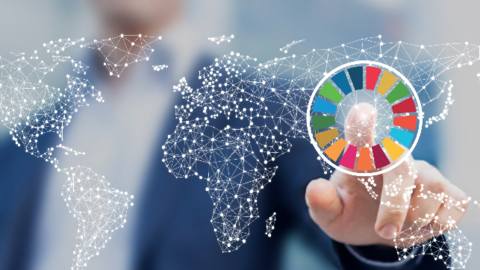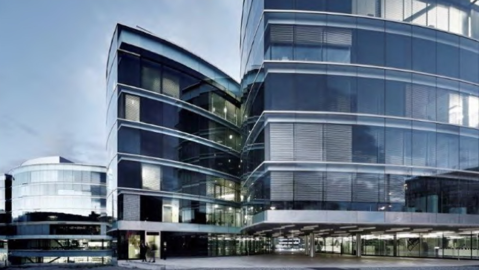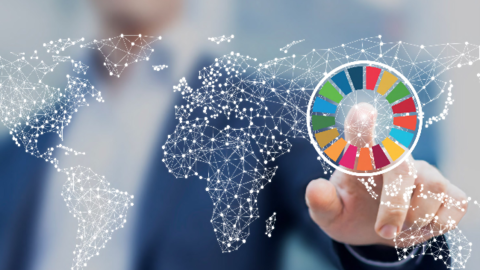Our history
The world faces three critical challenges: the climate emergency, nature loss and mounting inequality. The COVID-19 pandemic has illustrated that these challenges are interconnected, and that our systems are ill-prepared for shocks. As global risks continue to build, business leaders are rallying behind a bold and urgent transformation agenda developed by the World Business Council for Sustainable Development (WBCSD), a CEO-led organization of over 200 leading companies.
WBCSD was established in 1995, as a platform for business to respond to sustainability challenges that were just beginning to break the surface of collective business consciousness.
Almost three decades later, as we reflect on our heritage and achievements, the urgency is clearer than ever. We know that we need to ramp up our efforts to achieve our vision of a world where more than 9 billion people live well, within planetary boundaries, by 2050.
The need for the sustainable transformation of the systems that govern our world is well recognized but also more urgent than ever before.
Guided by our mission to accelerate the transition to a sustainable world and to help make more sustainable businesses more successful, WBCSD and our members have been instrumental in this shift.
It’s now well understood that business’s sole responsibility is not just to make profits: it must take care of the planet and its people as well. The Paris Agreement and the Sustainable Development Goals have provided two global frameworks that can help business make this transition, but the pace of change is still not fast enough.
WBCSD is driven by our desire to help companies lead, transform and succeed. Vision 2050: Time to Transform sets a shared vision of a world in which more than 9 billion people are able to live well, within planetary boundaries, by 2050. To achieve this vision, we need transformation at scale, and business needs to focus its actions on the areas through which it can best lead the systems transformations.
Vision 2050: Time to Transform maps how systems transform and lays out a new framework to guide business action in the decade ahead. At the heart of this framework are nine transformation pathways – actionable routes for companies to take – covering the areas of business activity that are essential to society: energy; transportation and mobility; living spaces; products and materials; financial products and services; connectivity; health and wellbeing; water and sanitation; and food.
The vision and transformation pathways are aligned with the Sustainable Development Goals (SDGs) and the targets of the Paris Agreement. Each of the nine transformation pathways contains ten action areas for the decade ahead, designed to help companies drive transformative change in their strategies, business operations and impact on society.
The birth of WBCSD
WBCSD was forged in the fire of leadership and collaboration, two values that continue to define the organization today.
In 1990, Maurice Strong, the Secretary-General of the United Nations conference on Environment and Development (UNCED), was looking for a leader to inject a business voice into the global conversation on sustainability and environmental issues, especially at the upcoming Rio Earth Summit in 1992.
He charged Stephan Schmidheiny with the responsibility, challenging him to spread the concept of sustainable development among the world’s business leaders and companies ahead of the Summit.
A Swiss businessman, Schmidheiny knew that his best chance of success was to ensure that global business leaders became advocates of the concept - rather than just becoming aware of it.
He recruited 48 CEOs from around the world to begin discussions, and in 1991 the "Business Council for Sustainable Development" was born.
At their first meeting, the CEOs agreed that to speak frankly, it was crucial to establish a confidential and pre-competitive “safe space” for open discussions. This freedom remains a touchstone for the organization today, and a key outcome from the very first dialogue was an agreement to publish an in-depth analysis of how the business community can adapt and contribute to sustainable development.
Published in June 1992, Changing Course was presented at the Rio Earth Summit and hailed as a landmark step in shaping a business point of view on environmental and economic issues. Gathering the expertise of more than 50 leaders of multinational corporations and backed by an array of case studies showing existing best practices, Changing Course provided an extensive analysis of how the business community can adapt and contribute to the crucial goal of sustainable development—which combines the objectives of environmental protection and economic growth.
After the success of the Rio Summit, many of the members of the BCSD petitioned to continue their work. The view was that forward-thinking businesses had a key role to play in leading sustainable development around the globe, and that an independent, non-commercial organization such as the BCSD could help forge this path.
After two further years of work, Bjorn Stigson was appointed President of the BCSD in 1994. His first significant act was to merge the group with a similar business association, in order to unite and strengthen the leading business voice on sustainability.
On 1 January 1995 the Council merged with the World Industry Council for the Environment (WICE). This group had been created by the International Chamber of Commerce (ICC) after the Rio Summit and was based in Paris.
The new World Business Council for Sustainable Development (WBCSD) opened its secretariat in Geneva, Switzerland, with 120 members committed to its mission.
Shaping and Influencing
Over the next decade and a half, WBCSD members firmly established the organization as the global go-to voice on sustainable development in business.
With the momentum of multinational companies propelling it forward, WBCSD produced outstanding research and trend forecasts, collaborated on cutting-edge projects that delivered tangible impact for member companies, and began to move the organization into the sphere of influencer and commentator on the business implications of the sustainable development agenda.
WBCSD’s structure as an independent, not-for-profit organization enabled the organization to act as both contributor and facilitator for discussions around the globe, at the local, national and international level. In addition, since its inception WBCSD has worked to supporting the development of local partners in countries around the world and now supports an extensive network of more than 60 Global Network partners. The breadth and depth of membership across different sectors brought with it a correspondingly diverse range of inputs.
This approach characterizes the work of WBCSD today. WBCSD works not just with cross-sectoral member companies who are part of this unique network, but also with governments, NGOs, civil society and many other players in order to keep pushing the business voice of sustainability forward.
Its capacity to convene and unite diverse views has made it a critical driver in the area of harmonizing measuring, reporting and managing sustainability impacts across financial, social and natural capital. In this way, WBCSD’s work goes far beyond the membership of its nearly 200 companies.
Today, WBCSD is headed by President and CEO Peter Bakker, who joined in 2012. The year was marked by the Rio+20 Conference, where WBCSD was part of Business Action for Sustainable Development 2012.
This was a coalition of business groups who provided a platform for exchanging policy recommendations, business solutions and partnerships to help advance sustainable development as part of the preparations ahead of the conference.
Since then the organization has built on the success of its approach through advocacy and collaboration, most notably by bringing the voice of business to the landmark COP21 discussions in Paris in 2015 through the ground-breaking Low Carbon Technology Partnerships Initiative, and in ongoing global discussions in the years since.
From awareness-raising in 1991 to action at scale today, everyone at WBCSD is working to accelerate the transition to a sustainable world.



